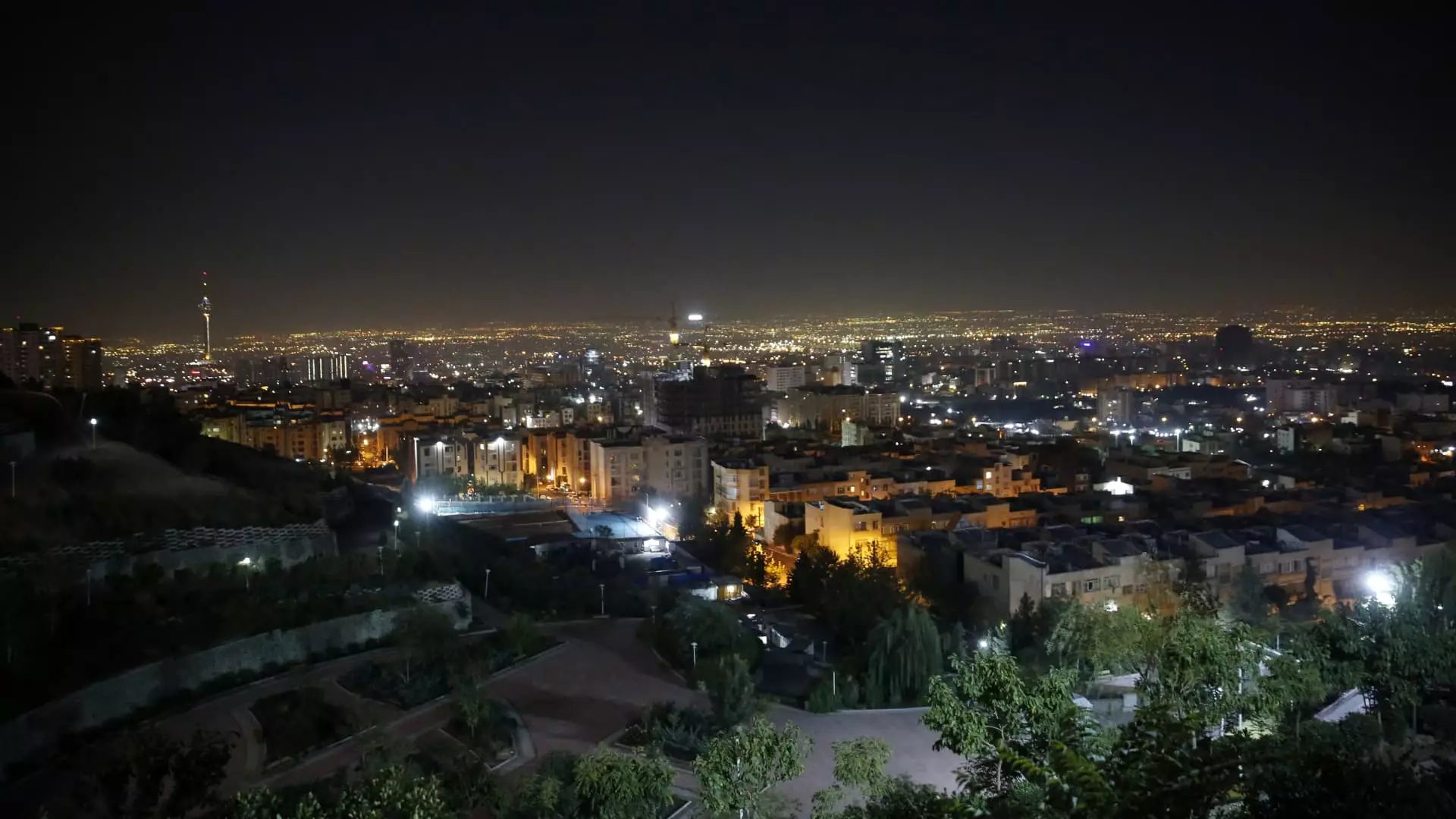In a decisive military maneuver early on Saturday, Israel targeted Iranian military sites in retaliation for an earlier attack attributed to Iranian-backed forces. This escalation comes against a backdrop of increasing regional tensions marked by ongoing conflicts in Gaza and Lebanon. These latest airstrikes reflect the fraught state of affairs between two long-standing adversaries, each armed with significant military capabilities and a historical context of hostilities. The question lingering in the air is whether these attacks will ignite further confrontations in an already volatile region.
Israeli military sources reported that they executed a series of organized airstrikes, successfully hitting missile manufacturing plants and several other military facilities located within Iran. While Iranian officials claimed that their air defense systems effectively intercepted a portion of the incoming attacks, they acknowledged some fatalities and limited physical damage to their military installations. This incident serves as a reminder that the already complex relationship between Iran and Israel is fraught with immediate risks of escalation: both nations are heavily armed, and any misstep could lead to an uncontrollable conflict.
The geopolitical stakes in the region have intensified since the Hamas attack on Israel on October 7, 2023. This incident marked a pivotal moment in Israeli-Iranian relations, ushering in a period of renewed hostilities. The Israeli administration has stated that Iran’s earlier actions—including the launch of roughly 200 ballistic missiles targeting Israel—have necessitated a more pronounced military response. With fears of a broader conflict escalating, both sides have reached for military options, despite international calls for de-escalation from various diplomats and leaders around the world.
As Israel braces for potential Iranian retaliation, it faces a precarious balancing act: safeguarding its national interests without triggering a wider war. The U.S. administration has warned Israel against any attacks on sensitive Iranian infrastructure, particularly its oil and nuclear facilities. Understanding the delicate nature of the situation, President Joe Biden underscored the need for restraint, urging Israel to explore alternative responses if hostilities persist.
The recent airstrikes present numerous implications for the geopolitical landscape. Footage broadcasted by Iranian media suggested that life continued largely unaffected in Tehran, showcasing a façade of normalcy. Nevertheless, the internal response within Iran remains potent; Iranian media outlets reported of a “proportional reaction” as a direct response to Israel’s military actions. Such rhetoric signals that while immediate retaliatory actions may not manifest, there exists a sustained intent to engage militarily should the situation escalate.
In the aftermath of these strikes, the international community, particularly neighboring nations, is closely monitoring Iran’s subsequent actions. With the specter of conflict looming, the region’s stability hangs in the balance, underscoring an urgent need for diplomatic interventions in order to avert a larger confrontation. The Israelis are keenly aware of this, having consulted with U.S. military officials prior to their airstrikes.
Israel’s military engagement isn’t confined just to Iranian territories; reports have emerged of concurrent strikes impacting military sites in Syria. These strikes symbolize Israel’s broader strategy aimed at neutralizing threats from Iran and its allies, such as Hezbollah—one of the more significant regional players aligned against Israel. With conflict simmering in Lebanon as well, the potential for a multi-front engagement looms ominously over the region.
Adding another layer of complexity, Saudi Arabia—a nation historically at odds with Iran—has recently sought rapprochement with its rival. The Saudi government condemned Israel’s military actions, framing them as violations of international law. Such positioning indicates that the geopolitical landscape is shifting, and the potential for new alliances and enmities is as fluid as ever.
As diplomatic efforts to resolve persistent conflicts in Gaza continue, including negotiations for ceasefires and potential hostage-releases, the immediate future appears uncertain. The airstrikes underscore the risk of an escalating cycle of violence that could envelop not just Israel and Iran, but potentially the broader Middle East, engulfing nations and leaders that are already on high alert due to the precarious security landscape.
What remains to be seen is how Iran will respond in the wake of these recent developments. With mutual threats and counter-threats, the desire for halt and peace must be balanced against the imperative to maintain national security. For policymakers, military leaders, and civilians alike, the tension between Israel and Iran continues to be a pressing concern, one that deserves international attention and informed dialogue as the situation unfolds.


Leave a Reply